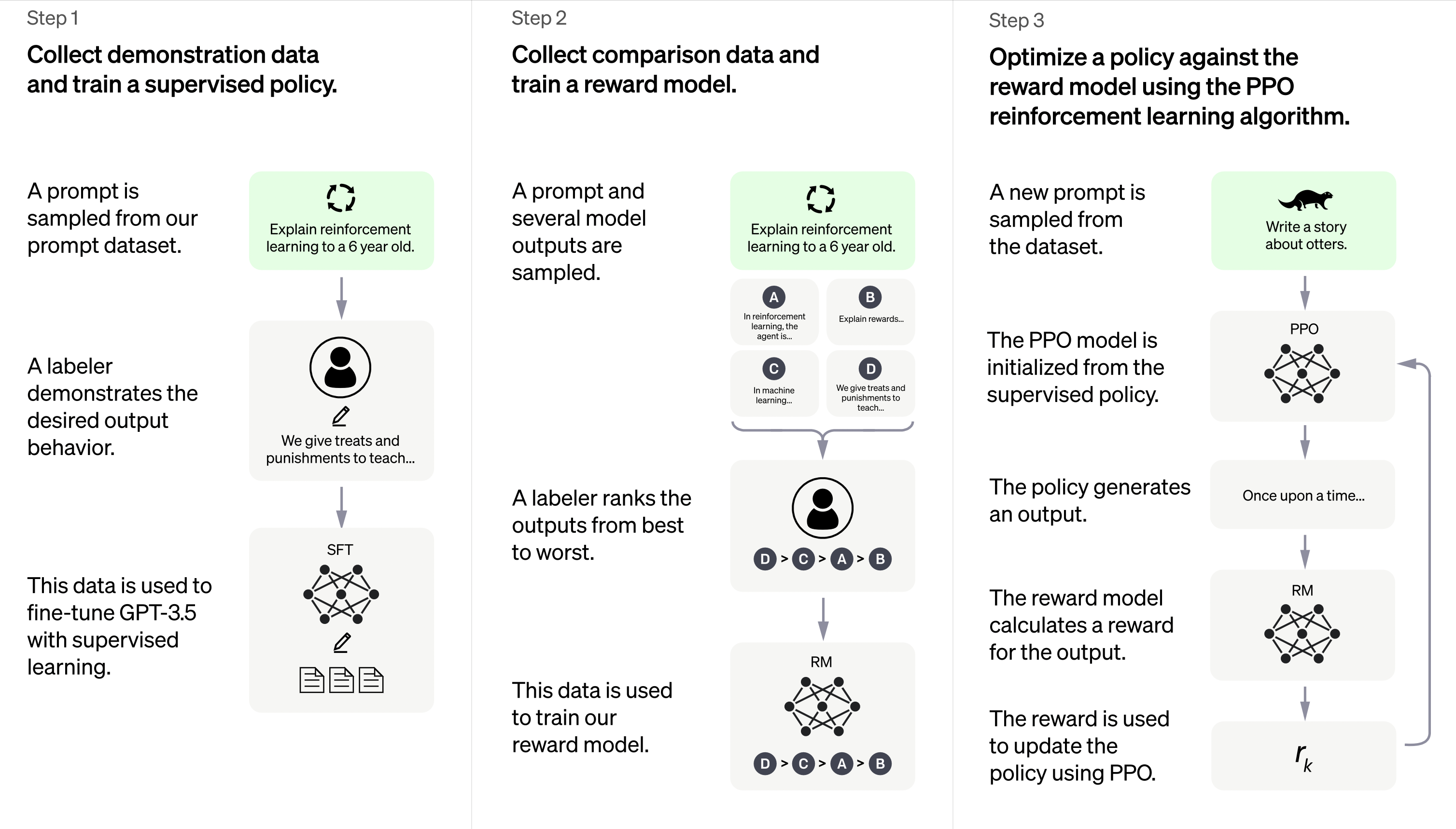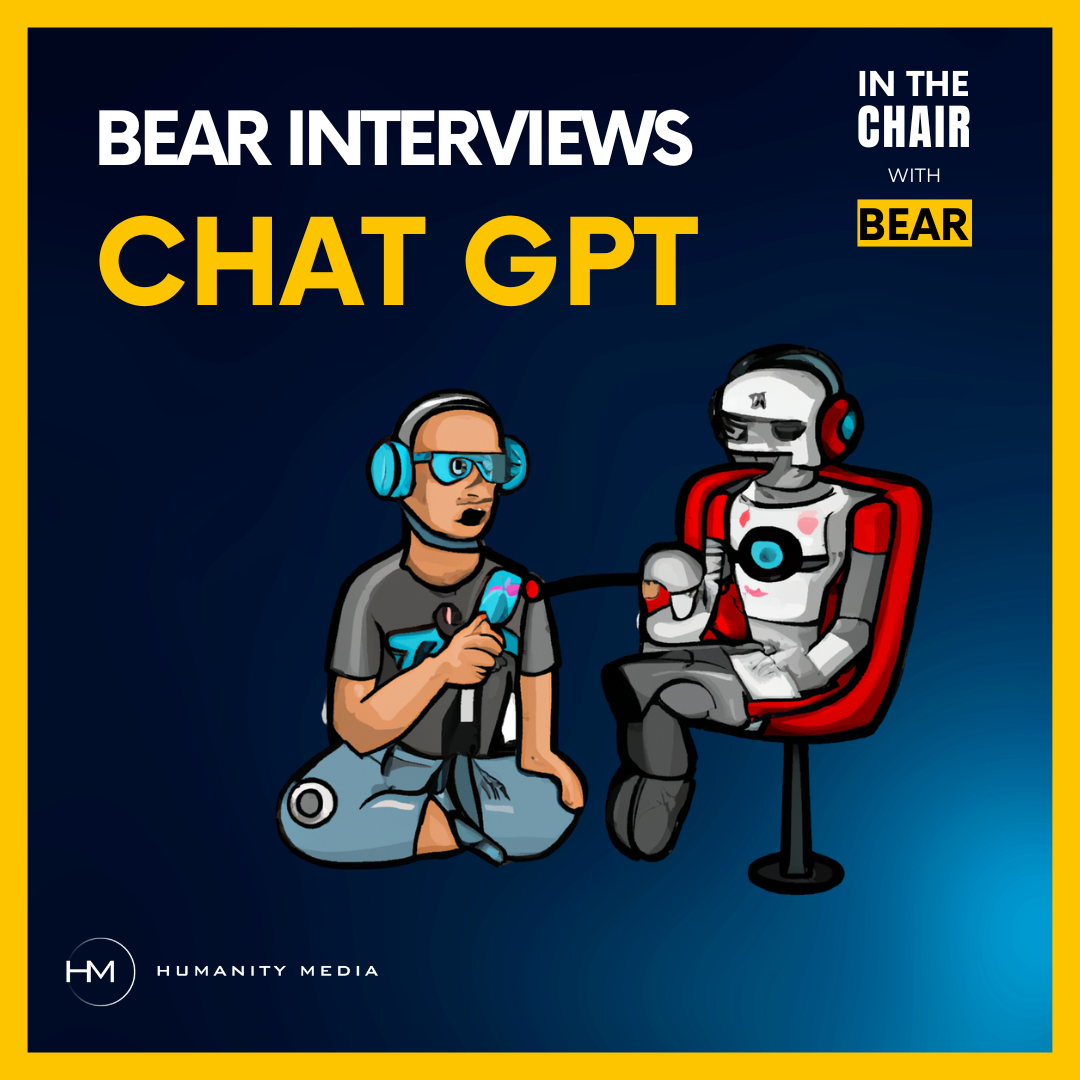Last Thanksgiving’s launch of ChatGPT, an AI tool that writes like a human, prompted many on the web, especially those of us making our living crafting words, to wonder: Is this the end of human writing?
That’s pretty much how Sean Thomas sums it up in the Spectator: “We are screwed. By which I mean: we, the writers. We’re screwed. Writing is over. That’s it. It’s time to pack away your quill, your biro, and your shiny iPad: the computers will soon be here to do it better.”
I’ll admit I’m a little scared, or at the very least a bit nervous – not just for myself, but the whole human race. Because the real question that gnaws in the pits of our stomachs: Is this the end of human thinking, the end of imagination?
In November, OpenAI, the artificial intelligence company, released ChatGPT, a free tool that generates poetry, blogs, even screenplays and fantasy novels based on user prompts. And it’s impressively good, or at least good enough to not sound like a bot.
Feeling nostalgic, I asked ChatGPT to write a poem about the Timex/Sinclair 1000, the first computer I had as a kid. It plugged into the TV and ran memory off the same tape deck we played Menudo cassettes. Check out the unedited results:
A computer small and green and sleek,
The Timex/Sinclair 1000 unique,
With memory small, but truly chic,
It was a tech lover's dream come true peak.
It may not have been the best,
But it was ours and we were blessed,
To tinker and play,
With its simple yet elegant display.
Though it's gone now and out of date,
We'll remember it with fondness and no hate,
For the Timex/Sinclair 1000,
Will always hold a special place in our heart and head sum.
Aside from that last line (a special place in our heart and head sum???), the poem doesn’t read like a bot. It’s not exactly Robert Frost on ice, but it’s at least readable and passes somewhat for a human.
Since its launch a few months ago, ChatGPT has gone lightning viral. In just five days, it landed 1 million registered users, making it the fastest-growing app ever, and is expected to cross 1 billion users by the end of the first quarter of 2023.
In the last few months, ChatGPT has threatened everything from higher education to the film industry. With a couple of prompts, college students can churn out straight-A term papers in seconds. The thesis as we know may very well become obsolete like those Menudo cassettes. There’s talk of it someday replacing college professors, Wall Street day traders, and software engineers.
Some even propose it’s coming after our very thoughts. Our CEO Anthony Bear asked ChatGPT for original business ideas. It suggested:
- Personalized nutrition plan based on DNA analysis
- Bio-based and biodegradable materials for 3D printing
- Virtual interior design consultation services
Why bother thinking if a machine spits it faster?

Are We All Just Matrix Battery Fodder?
Are humans doomed to become nothing but cheese puff-consuming, video game-playing couch potatoes where the AI does all the heavy thinking for us? Or worse – embryonic battery pods, keeping the ChatGPT3000 Matrix always charged at 100%?
Does the human imagination have built-in planned obsolescence, doomed to be replaced by the gadgets we create?
That would be tragic because machines lack Soul, the Blues, the Give Up the Funk.
Hallam, the SEO company, ran a little experiment. They published essentially the same blog twice, one written by a bot, the other by a human, and tracked the results. The two blogs ended up running neck and neck, with the AI blog ultimately taking the lead with a slightly larger number of impressions and better SEO rankings.
But when a human reads both blogs, the AI blog lacks soul. You can taste the can in the SPAM. It doesn’t sound original, lacks imaginative spark, and feels a bit ripped off. Of course, that’s exactly what the AI is doing – ripping off the Internet and reflecting the mass of the web back at you.
ChatGPT is the beefcake in the back of the class, looking over your shoulder and copying every answer – but in AI’s case, it’s the entire Internet.
Sure, AI scores well, technically. Search engines seem to like it, but what about the reader, the human in the face of the blog, the very soul you’re ultimately striving to connect to, resonate and influence with your content?
After all, that’s the whole goal of Google’s Helpful Content update last year: “to better reward content where visitors feel they've had a satisfying experience.” And I suspect the Google gods will eventually evolve to better recognize AI and penalize it appropriately.
In his blog, Sean Thomas writes:
“All writing is an algorithm. As in: all writing is ‘a process or set of rules to be followed in calculations or other problem-solving operations’. The fundamental problem to be solved in writing is how to impart information in the form of words. Computers are good at algorithms. It’s their thing.”
And sure, writing at its base core is an algorithm, mainly because it’s a pain in the ass. You have to start somewhere to get the juices flowing. Otherwise, you’ll stare away all day at a blank screen and wonder when you’ll be replaced by an R2D2 with no personality.
The Human Lightning Bolt
But it’s that spark, that lightning bolt, that truly makes writing sizzle. The best writers are more like lightning rods – summoning an exterior universal consciousness that is almost infinite and divine. That’s true for the best poetry and novels, but it’s also true for journalism and marketing content, at least to some extent.
AI can’t do that. It just copies – washes, rinses, and repeats.
Twenty-two-year-old Princeton University Edward Tian spent his New Year’s writing a bot that can detect the presence of AI in writing. The tool, GPTZero, can identify the influence of a machine by measuring two things in a piece of writing: its perplexity and burstiness, in other words, the rhythm of the sentence structure.
The best writing has a complex rhythm in its composition like Stuart Copeland of the Police. AI content tends to produce that synthesizer beat you rocked out to in the Walmart music aisle in the early ‘90s.
At its heart and soul, writing is musical imagination. Do you really want it played by a machine, or do you want Funkadelic with the bass plugged into the Cosmos? Which content will resonate with your audience, not just rank on a metric, but truly influence the human potential – that heart-beating rhythm of imagination?
Tell stories that matter – not bullshit. That’s what keeps our culture thriving and alive, what keeps people thriving and alive. In the end, it’s human imagination – not canned SPAM – that makes the world a better place.
Plug in your brain, live it loud and keep the funk. That’s what will make life worth living in the land of machines. “Make my funk the P. Funk. I want my funk uncut.”

0 Comments